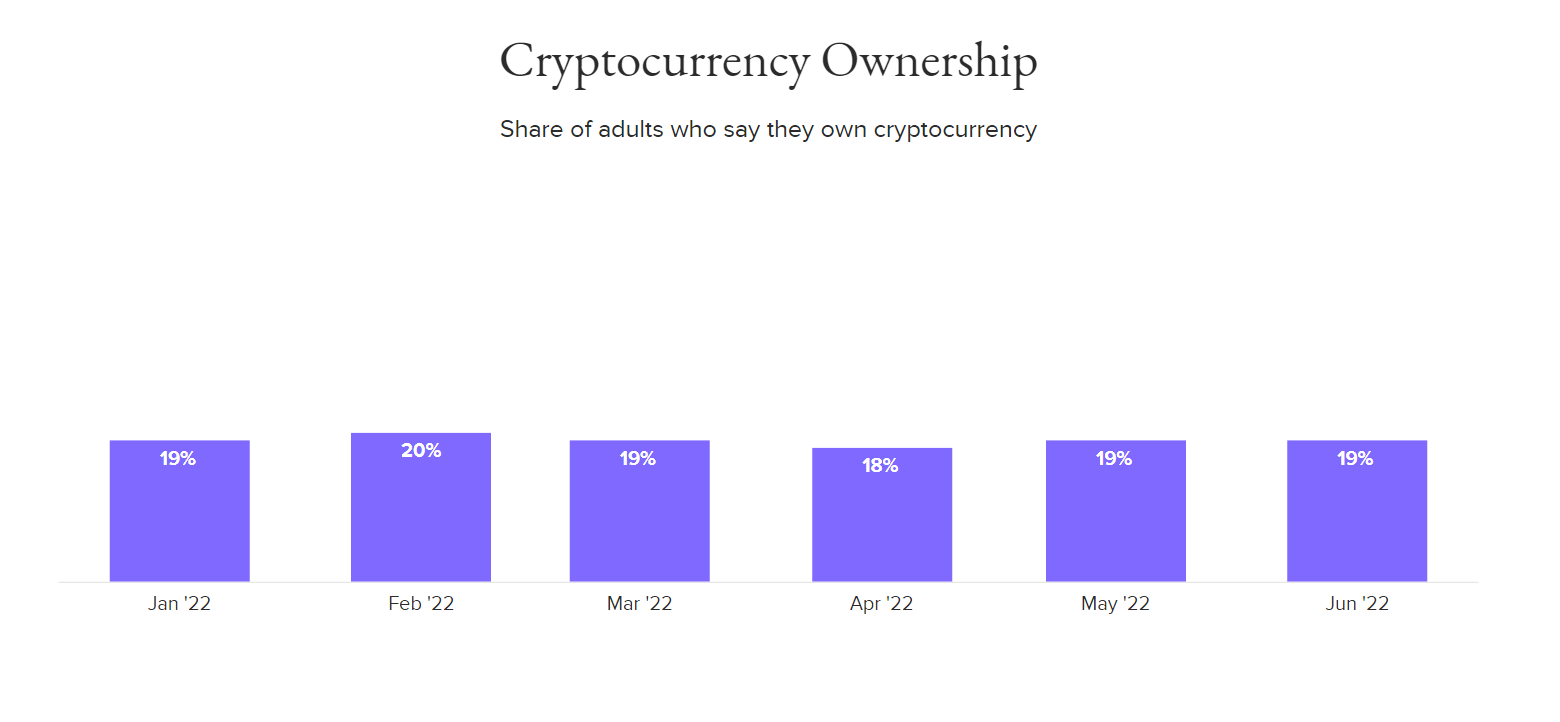
Trust in Dogecoin and other cryptocurrencies has dropped significantly following the market crash
In spite of the major cryptocurrency market correction consumers are not selling their cryptocurrencies in droves.
According to a new survey conducted by Morning Consult, 19% of U.S. adults reported owning digital assets in mid-June after the price of the world’s largest cryptocurrency plunged below the $20,000 level. The percentage of American cryptocurrency owners has remained unchanged since the start of the year despite the fact that Bitcoin was trading at a much higher price in January.

Bitcoin, Ethereum, Circle’s USDC Coin (USDC), and meme cryptocurrency Dogecoin are the most popular digital assets.
Trust in Bitcoin remains net negative. Confidence in Dogecoin has declined to a new all-time low of -52%. American consumers also have little trust in non-fungible tokens.
The percentage of those who believe that cryptocurrencies are mostly harmful to society has reached the highest level since January (32%).
Speaking of demographics, Bitcoin remains the most popular cryptocurrency among millennials and those who earn more than $100,000 a year.
The reported likelihood of purchasing cryptocurrencies has dropped by roughly 2%, with investors being less inclined to spend more on risky assets due to inflation concerns.
At the same time, American cryptocurrency owners remain cautiously optimistic about Bitcoin’s future price performance. On average, they expect the cryptocurrency to hit $38,000 by the end of the year. On the other hand, those Americans who do not own any crypto believe that Bitcoin will remain slightly above the $20,000 level. Earlier this month, the world’s largest cryptocurrency dropped to $17,600, which marked a short-term bottom for the world’s largest cryptocurrency.




